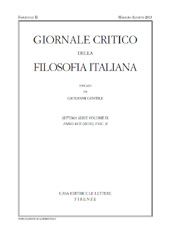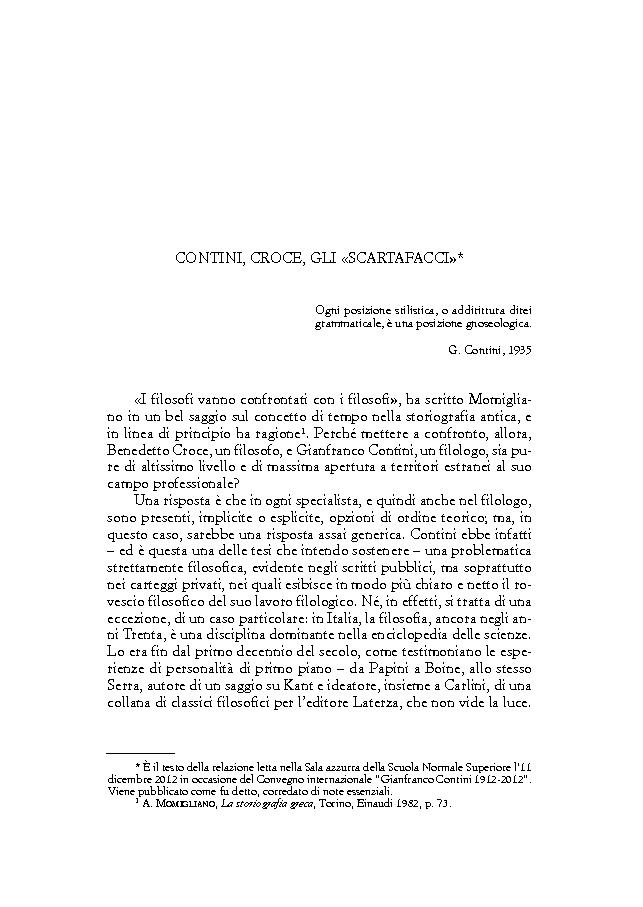Contini, Croce e gli «scartafacci»
277-301 p.
Nell'opera di Gianfranco Contini, come in quella di studiosi della sua generazione (Garin, Dal Pra, Abbagnano, Luporini etc.) emerge una problematica strettamente filosofica, che trovò alimento nei temi dell'esistenza e della 'condizione umana'. La filologia', concepita come «lavoro», ha in Contini un fondamento ontologico, è un esercizio di carattere etico e conoscitivo, al crocevia tra arte, critica e moralità. Su questo terreno, nonostante la celebre polemica apertasi nel '47 sugli «scartafacci» – in un momento tragico della storia europea –, Croce e Contini in fondo convergevano sul significato storico ed etico e sul valore dell'Umanesimo come esercizio della libertà e momento centrale della biografia e della coscienza, dei 'moderni'. [Testo dell'editore].
In the works of Gianfranco Contini, and in those of other scholars of his generation (Garin, Dal Pra, Abbagnano, Luporini, etc.), a purely philosophical question, focused on issues such as the existence and the human condition, arises. Philology, intended as 'work', found in Contini an ontological fundament, and it was an ethical and cognitive exercise at the crossroads between art, critique and morality. Despite the famous struggle started in 1947 on the waste papers ('scartafacci'), in a tragic moment of the european history, Croce and Contini fundamentally agreed on this ground, and in particular on the historical and ethical meaning of the Humanism, and on its importance as exercise of freedom and as a central period of the biography and of the conscience of the 'moderns'. [Publisher's text].
-
Artikel aus derselben Ausgabe (einzeln erhältlich)
-
-
Informationen
DOI: 10.1400/273077
ISSN: 2284-1474



